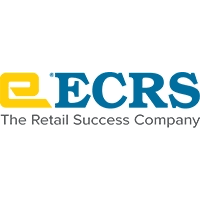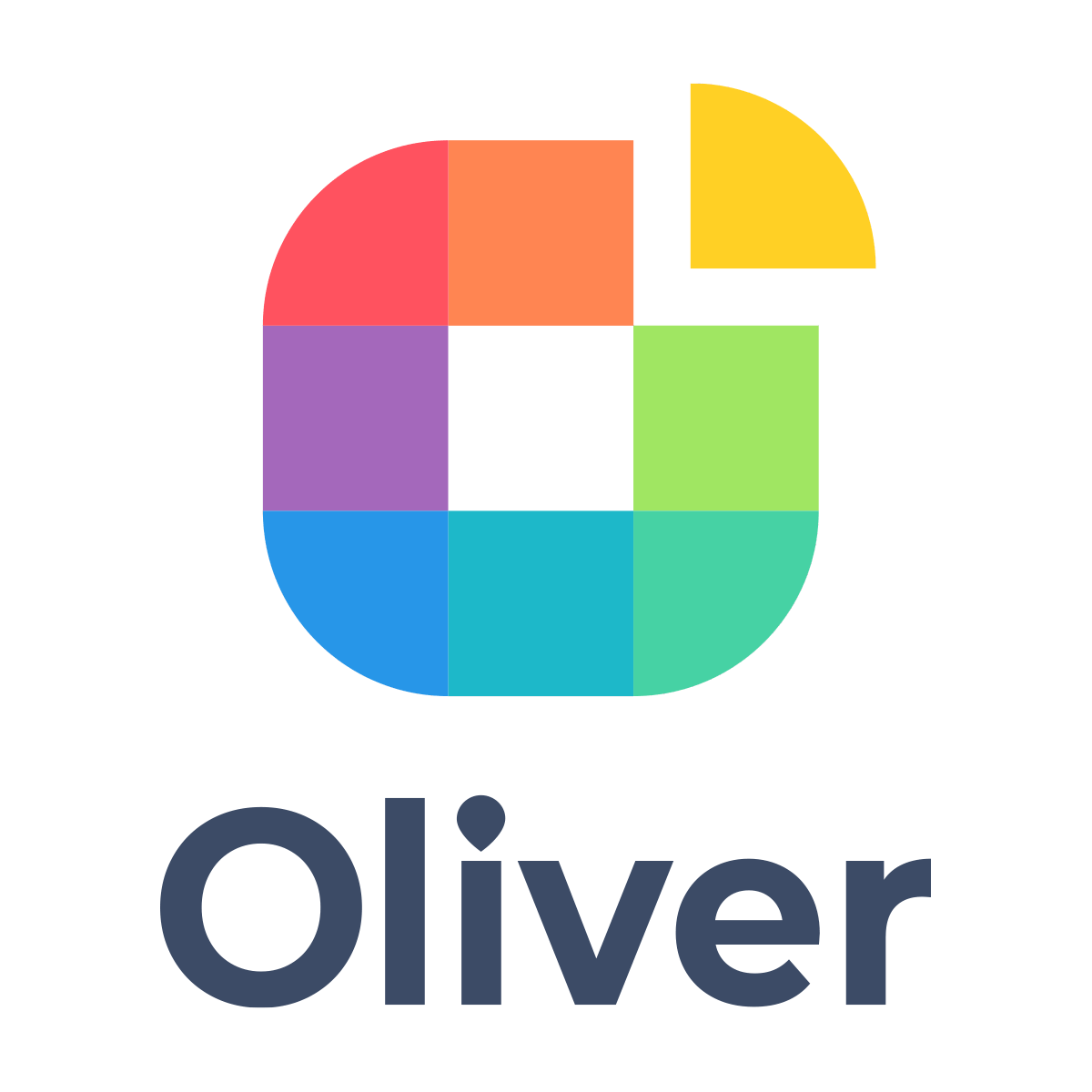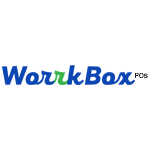Description

TeamPOS

ECRS
Comprehensive Overview: TeamPOS vs ECRS
TeamPOS, ECRS Comprehensive Overview
a) Primary Functions and Target Markets
TeamPOS: TeamPOS is a suite of point-of-sale (POS) systems primarily used in the retail and hospitality sectors. Its key functionalities include transaction processing, inventory management, sales reporting, customer relationship management (CRM), and employee management. TeamPOS systems are often designed to integrate with other business systems for a seamless operational workflow, ensuring efficiency in retail environments.
Target Markets:
- Retail: This includes supermarkets, department stores, specialty stores, and convenience stores.
- Hospitality: Adoption in quick-service restaurants, full-service restaurants, bars, and cafes.
ECRS (Efficient Collaborative Retail Solutions): ECRS is a technology solution provider focused on creating comprehensive retail management systems. The main functions of ECRS systems include end-to-end retail automation, inventory management, business analytics, and secure transaction processing. ECRS is known for its flagship product, CATAPULT, which encompasses various functionalities to support diverse retail operations.
Target Markets:
- Grocery and Natural Product Stores: Emphasis on supermarkets and health food stores.
- Fuel and Convenience: Leveraging the integration of fuel sales with in-store transactions.
- Retail Pharmacies: Tailored solutions to streamline operations specific to pharmacy retail.
b) Market Share and User Base
TeamPOS:
- Market Share: TeamPOS systems have a moderate share in the POS market with a focus on small to medium-sized businesses (SMBs) and specialty retailers.
- User Base: The user base tends to be segmented across various small-scale retail operations, with increasing uptake in regions experiencing growth in hospitality and boutique retail segments.
ECRS:
- Market Share: ECRS commands a significant presence in the niche grocery, health products, and convenience store segments, often where comprehensive, fully integrated systems are valued.
- User Base: The user base is highly loyal, particularly among grocers and pharmacies that require specialized inventory and sales analytics capabilities.
Comparatively, while ECRS may not have as broad a user base as POS systems targeting general retail, it holds a strong position in its specialized markets, and its flagship product line has a dedicated following.
c) Key Differentiating Factors
Differentiating Factors of TeamPOS:
- Versatility Across Sectors: TeamPOS systems offer solutions centrally focused on flexibility, allowing businesses across varied sectors to customize the software to fit their operational needs.
- Integration Capabilities: Known for robust integration with third-party software for inventory, accounting, and CRM, allowing businesses to adopt a unified technology framework.
- User-friendly Interface: Systems are built with a focus on easy-to-use interfaces, making them particularly appealing to businesses with high employee turnover, as less training is required.
Differentiating Factors of ECRS:
- Comprehensive Retail Management: ECRS offers deeply integrated solutions, from point of sale to back-end operations, catering specifically to complex retail environments such as grocery and pharmacy.
- Focus on Automation and Analytics: ECRS systems emphasize automation and rich data analytics, empowering retailers with actionable insights for inventory management and sales optimization.
- Targeted Solutions for Specialized Retail: ECRS differentiates itself by developing products that meet the unique needs of niche markets such as organic food stores and pharmacies.
In summary, TeamPOS is best suited for general retail businesses looking for adaptable POS solutions, while ECRS specializes in providing intricate, industry-specific systems for grocery and pharmacy environments, with an emphasis on integration and analytics. Both systems, however, strive to enhance operational efficiency and customer service in the retail sector.
Contact Info

Year founded :
Not Available
Not Available
Not Available
Not Available
Not Available

Year founded :
1940
Not Available
Not Available
Not Available
Not Available
Feature Similarity Breakdown: TeamPOS, ECRS
To provide a feature similarity breakdown for TeamPOS and ECRS, let's explore what information is typically available about these systems. Note that while I strive for accuracy, specific details can vary based on the latest versions of the products, customizations, or package options offered by each provider.
a) Core Features in Common
Both TeamPOS and ECRS systems often include several core features that are expected in modern Point of Sale (POS) systems:
-
Sales Processing: Both systems enable efficient transaction processing, supporting various payment methods such as cash, credit/debit cards, and mobile payments.
-
Inventory Management: Integrated inventory management allows businesses to track stock levels, order supplies, and monitor product performance.
-
Customer Management: These systems often have CRM capabilities to track customer information, purchase history, and loyalty program participation.
-
Reporting and Analytics: Comprehensive reporting tools that provide insights into sales trends, inventory status, and customer behavior.
-
Employee Management: Features such as staff scheduling, time tracking, and performance monitoring are typically included.
-
Data Security: Compliance with PCI DSS standards for securely handling card payments and customer data is standard for both systems.
b) User Interface Comparison
The user interface (UI) of POS systems is critical for user adoption and operational efficiency. Typically, here’s how the UIs might compare:
-
TeamPOS: Generally known for a clean, straightforward interface that emphasizes ease of use. It's often praised for its customization options that allow businesses to tailor the UI to specific needs.
-
ECRS: The UI is typically designed to be intuitive, featuring a modern look with easy navigation. It might include touchscreen capabilities that expedite the check-out process and minimize training time for new employees.
Both systems aim to minimize complexity for end-users while offering powerful backend tools for managers and owners. User feedback often determines the usability improvements and customization capabilities each update provides.
c) Unique Features
Each system might offer unique features that set them apart:
-
TeamPOS Unique Features:
- Flexibility and Customization: Possibly more flexible in terms of hardware compatibility and software customization, allowing retailers to build a POS system that fits their exact needs.
- Mobile and Cloud Integration: Enhanced support for mobile devices and cloud-based operation could be available, facilitating remote management and access.
-
ECRS Unique Features:
- Advanced Loyalty Programs: Possibly includes advanced, built-in loyalty program features that can be customized to meet specific business goals.
- Omnichannel Capabilities: ECRS might offer superior integration with e-commerce platforms and support for omnichannel retailing, enhancing the customer experience across various sales channels.
In conclusion, both TeamPOS and ECRS provide robust POS solutions with many core functionalities that are expected by modern retailers. Differences often lie in customization capabilities, user interface preferences, and unique features that cater to specific business models or industries. It is always advisable to demo these systems and compare them against specific business needs before making a decision.
Features

Not Available

Not Available
Best Fit Use Cases: TeamPOS, ECRS
TeamPOS and ECRS are both point-of-sale (POS) solutions, but they cater to different types of businesses and scenarios. Below is an analysis of their best fit use cases:
TeamPOS
a) For what types of businesses or projects is TeamPOS the best choice?
-
Retail Chains: TeamPOS is designed for large-scale retail operations, such as hypermarkets, department stores, and specialty retail chains. Its robust features support high-volume transactions, inventory management, and multi-location operations.
-
Convenience Stores: The system offers quick checkout processes, which is ideal for fast-paced environments like convenience stores where time efficiency is crucial.
-
Supermarkets: With its integrated systems for managing various store operations, TeamPOS is excellent for supermarkets that need to handle massive inventories and diverse product ranges.
-
Businesses with Existing Infrastructure: TeamPOS can be seamlessly integrated into existing IT infrastructure, making it suitable for businesses that want to upgrade or enhance their current systems without starting from scratch.
b) In what scenarios would ECRS be the preferred option?
-
Grocery Stores: ECRS is particularly well-suited for grocery stores, offering features such as efficient inventory management, seamless supplier integration, and customer loyalty programs.
-
Food Service Industries: ECRS provides solutions tailored for restaurants, cafes, and delis. Its focus on quick transactions, order accuracy, and kitchen management systems meets the specific needs of food service environments.
-
Health and Natural Food Stores: The specialized functionalities for managing organic and health-conscious product inventories make ECRS an optimal choice for health food stores.
-
Retail Operations Focused on Customer Experience: ECRS emphasizes customer engagement and loyalty features, which make it a good choice for businesses that prioritize building strong customer relationships and personalized service.
d) How do these products cater to different industry verticals or company sizes?
-
Industry Verticals:
- TeamPOS caters to traditional retail sectors and is highly adaptable to a wide range of industries that require complex inventory and customer management systems. Its versatility allows it to be customized for specific industry needs, such as electronics retailers or fashion stores.
- ECRS, on the other hand, focuses on the grocery and food service sectors but also offers solutions for other specific verticals that benefit from its strengths in inventory control and customer engagement.
-
Company Sizes:
- TeamPOS is best suited for medium to large enterprises with multiple locations and complex operational needs. Its comprehensive suite of features is designed to support scalability and the demands of large businesses.
- ECRS is appropriate for both small and medium-sized businesses, offering scalable solutions that can grow with the company. Its easy-to-use interface and industry-specific features make it accessible for smaller operations that still require robust POS capabilities.
In summary, the choice between TeamPOS and ECRS largely depends on the specific industry, business size, and operational requirements. TeamPOS excels in environments needing comprehensive management solutions for large-scale operations, while ECRS focuses on niche markets such as grocery and food service with a strong emphasis on customer experience.
Pricing

Pricing Not Available

Pricing Not Available
Metrics History
Metrics History
Comparing undefined across companies
Conclusion & Final Verdict: TeamPOS vs ECRS
To provide a comprehensive conclusion and final verdict on TeamPOS and ECRS, let's break down the analysis based on their overall value, pros and cons, and specific recommendations for potential users.
a) Best Overall Value
Considering All Factors:
-
TeamPOS: This solution often stands out for businesses looking for a robust and flexible point-of-sale system tailored to specific industry needs. It tends to offer strong customization options, making it ideal for businesses that require tailored solutions. TeamPOS could provide better value for retail environments that demand specific features and adjustments.
-
ECRS: Known for its efficiency in streamlining operations, ECRS offers comprehensive services within the grocery and retail industries. It can be particularly valuable for businesses seeking an integrated system with strong inventory management and customer service capabilities.
Considering factors such as cost, customization, industry-specific features, and user support, ECRS often edges out as the best overall value for businesses that do not need deep customization but prefer a comprehensive, ready-to-deploy solution with excellent industry support and integration capabilities.
b) Pros and Cons
TeamPOS:
Pros:
- Highly customizable to fit unique business needs across various industries.
- Strong integration capabilities with third-party applications.
- Reliable customer support with options for bespoke solutions.
Cons:
- Higher cost and complexity due to customization potential.
- Can require more time for setup and training, particularly for customized features.
- May offer too many features that are unnecessary for smaller businesses.
ECRS:
Pros:
- Streamlined and user-friendly interface, ideal for grocery and retail settings.
- Excellent inventory management and reporting tools.
- Integrated customer service solutions and quick deployment.
Cons:
- Less flexibility for businesses that need niche customization.
- Typically more suited for small to medium-sized enterprises rather than large enterprises.
- May lack certain specialized features that some industries require outside the retail and grocery arenas.
c) Specific Recommendations
-
For Businesses Needing Custom Solutions (e.g., specialty retailers or niche industries): TeamPOS is recommended. The flexibility and customization they offer can match unique operational needs and enhance business efficiencies.
-
For Businesses Prioritizing Integration and Simplicity (e.g., grocery stores, standard retail outlets): ECRS is preferable due to its seamless integration and user-friendly design, which helps in reducing setup time and maximizing uptime.
-
For Smaller Enterprises Seeking Cost-Effectiveness Without Sacrificing Essential Features: ECRS could be more suitable, as it tends to offer the necessary tools at a potentially lower cost, and is highly efficient for standard retail operations.
-
For Larger Enterprises or Businesses With Complex Inventory Needs: TeamPOS, with its advanced customization and integration features, might be the better choice despite the potentially higher cost.
Final Verdict
The final choice between TeamPOS and ECRS ultimately depends on specific business needs and priorities, with ECRS generally providing better overall value for mainstream retail and grocery environments, while TeamPOS excels for those needing tailored solutions. Users should conduct a thorough internal assessment of their business requirements, budget, and growth plans to make an informed decision.
Add to compare
Add similar companies



